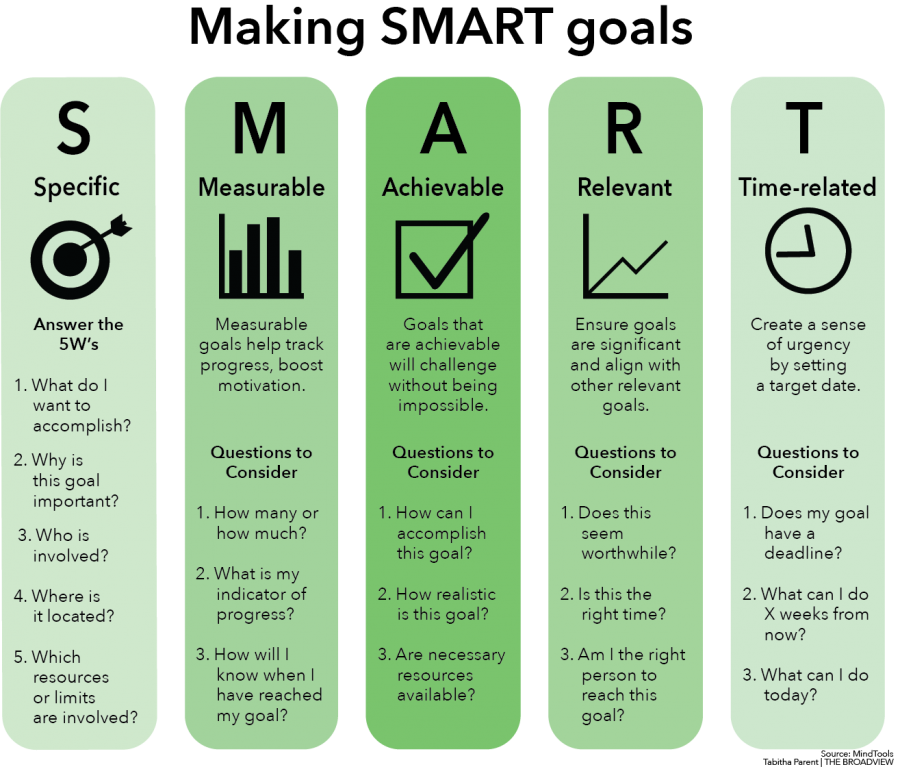Modified goals can help reduce ‘dropping the ball’
Adapting resolutions allows for more achievable goals
February 22, 2021
Come February, many students find that the New Year’s resolutions that they committed to at the beginning of the year have petered out due to unrealistic self-expectations, but there are still ways to realign those goals and carry them out.
Approximately 80% of New Year’s resolutions are deserted in February, according to U.S. News & World Report. By the end of the year, only 8% of people actually follow through with their resolutions, according to University of Alabama Birmingham Medicine.
“I always made super unrealistic resolutions like having one hour of screen time or reading two hours a day,” sophomore Ella Woods said. “It got too hard to commit so I always ended up giving up.”
Resolutions often fail due to vagueness, an unrealistic achievement plan, or having set that goal based on external pressure or expectations, according to Business Insider.
In order to overcome these traps for failure, sticking to a resolution may require changing it throughout the year to better accommodate your lifestyle, according to life coach Kristin Hoover.
“If you look at your life as a landscape, there’s always these shifts,” Hoover said, “With that, your resolutions will more than likely shift as well.”
As the year has gone on, Woods has found that changing her resolution to fit her routine has made continuing it much easier.
“In the beginning of the year my resolution was to be vegetarian and to exercise daily,” Woods said. “I found that too hard so I changed it and made it more realistic; now I am pescetarian and I try to exercise four to five times a week.”
For those looking for a definitive date to reset their resolutions, the start of the Christian liturgical season Lent can present that opportunity.
“Having Lent near the beginning of the year is super helpful and allows people to change up their resolution into a better and more practical goal,” freshman Charlotte Lyon said. “I kind of gave up on my resolution two weeks ago but the start of Lent has made me motivated to start over and try again.”
Lent, which began this year on Feb. 17 is a 40-day period for Christians to reflect and prepare for the celebration of Easter. Many Christians view this season as an opportunity to give alms and practice self-discipline through fasting, or giving something up.
“I really enjoy Lent because it is a great opportunity for me to work on what I need to improve about myself,” Woods said. “It is also helping me stay consistent with my resolution because I am giving up red meat and continuing to exercise for Lent too.”
Many individuals find that their resolutions cause them to be disappointed and unsatisfied in themselves when they find that their goal is too hard to achieve in a short amount of time.
“Something many people tend to do is beat themselves up about breaking their goals,” senior Naia Urruty said. “Staying positive and knowing that it is okay to mess up every once in a while will help people follow through and accomplish their goals.”
Remaining aware of obstacles that may hinder progress can help individuals stay on track with their goals in a healthy way, according to Psychology Today.
“I think that this will be the year I follow through with my resolutions,” Woods said. “It will be hard but I am up for the challenge.”










